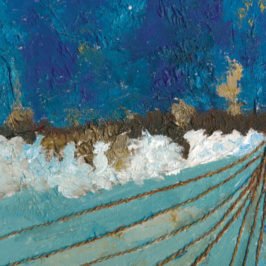


On flight and nightly trips, with poems by Scott Ward, Arne Weingart and Paula Colangelo.
6 minutes
TRANSCRIPT
December 8, Mars was brighter than at any other time in 2022. December 13th and 14th is the Geminids Meteor Shower. December 21st, in addition to being the winter solstice, is the night that the planet Mercury will be at its brightest. AND December 17th is Wright Brothers Day, commemorating the first successful flight of a heavier than air object — a.k.a. the first airplane — by Orville and Wilbur Wright in Kitty Hawk, NC. On this edition of Burning Bright, some pieces about flying and the sky.
When Scott Ward was learning to fly, he flew over Tuskegee, Alabama, where the famous Tuskegee airmen trained during WW II. He said, “I thought what great men they were who loved their country and embraced the highest responsibilities of citizens even though they were not accepted as full citizens.” Here’s Scott Ward’s poem “Flying at Night.”
I was not licensed to fly nor was it night
but dusk as I taxied over the threshold
of the 3-6 runway in a little
Alabama town you’ve never heard of
and stood on the brakes. The four stroke grumbled
and missed, spinning the wild prop, sky fading
gradations of rose and bruise toward complete
black and the runway lights were coming up,
beguiling. A taste of Jack Daniels had cleared
my head and I sat in the cockpit watching
the light fail and didn’t want profound thoughts
or deep insight. I knew what I could do
with my hands on yoke and throttle. One minute
and the runway was a stick of chewing gum,
sliding away behind me, under my wings.
Twenty more and cities slipping past me
were patches of incandescent flowers,
fragments of heaven sown in endless dark.
I navigated over Tuskegee,
thinking of heroes, those genuine men,
who give it up and never tell a soul.
Scott Ward’s “Flying at Night” from Passager Issue 66.
Next, Arne Weingart’s poem “The Weather on Mars.” In his poem he refers to specific regions on Mars. He dedicated the poem to his children Zoe and Isaac.
You’ll say that everything is more or less
the same, the way you usually do,
although we can’t help hearing the reports
that filter back to us, belatedly,
of conflagrations of dust and vapor ice
in the Noachis Quadrant, your last known
destination. We’d guess by now you have
undoubtedly moved on to Syrtis Major
or perhaps even as far as Elysium,
which sounds pleasant enough from this great distance.
We have no sense of scale or of the range
of reds our common sun surrenders in
your dawns, any of which would help us feel
closer, although not close, not now, not yet.
We shouldn’t blame you for our failed attempts
to understand sea level where there is
no sea, where all the local hills shoulder
Everest aside, where love is absolute
and chance has consequences we could never
accommodate, however much we’ve seen
ourselves and been or hoped to be. We think
we know what can be known about the way
life turns toward life. But you are in a place
we never would have thought it possible
to be accustomed to. Some night, out on
Bradbury Landing or Glenelg, look down,
through all the planetary cold, at us
as we look up, as we look up at you.
Arne Weingart’s poem “The Weather on Mars” from Passager Issue 59.
Paula Colangelo said, “Like most of us, I’m enamored with the moon. When I heard scientists were building a fake orb to illuminate city streets, I felt it took away all romance and mystery.” Here’s her poem “Midnight Under the Artificial Moon” from Passager Issue 73. It begins with this epigraph from the BBC News Online:
“A Chinese company has announced ambitious plans to put a “fake moon” into space to brighten the night sky.”
Lovers will not pass under its gaze,
croon to its blue-ness, want to fly there.
Nor will this hanging lamp
enhance bonfires,
boardwalks, or dewy lawns.
No one will name it — Harvest
Hunter’s
Wolf
or praise the god within —
Igaluk
Mama Killa
Napir
We remain fond of the waning crescent,
the waxing gibbous.
We find faces in deep
craters or imagine civilizations
thriving on its dark side.
We will tire of fluorescence —
glowering kitchen light.
This new ball of mirrors will follow us
home from work, glare into each window,
reverse the nocturnal to fractured sleep.
Paula Colangelo’s “Midnight Under the Artificial Moon.”
To subscribe to or learn more about Passager and its commitment to writers over 50, go to passagerbooks.com. You can download Burning Bright from Spotify, Apple and Google Podcasts and various other podcast apps.
For Kendra, Mary, Christine, Rosanne and the rest of the Passager staff, I’m Jon Shorr.
Due to the limitations of online publishing, poems may not appear in their original formatting.






